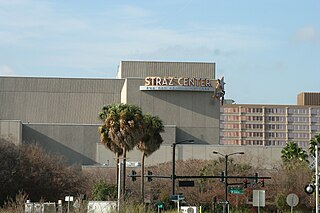White supremacy is the belief that white people are superior to those of other races and thus should dominate them. The belief favors the maintenance and defense of any power and privilege held by white people. White supremacy has roots in the now-discredited doctrine of scientific racism and was a key justification for European colonialism.
White guilt is a belief that white people bear a collective responsibility for the harm which has resulted from historical or current racist treatment of people belonging to other ethnic groups, as for example in the context of the Atlantic slave trade, European colonialism, and the genocide of indigenous peoples.

John Hamilton McWhorter V is an American linguist. He is an associate professor of linguistics at Columbia University, where he also teaches American studies and music history. He has authored a number of books on race relations and African-American culture, acting as political commentator especially in his New York Times newsletter.
White privilege, or white skin privilege, is the societal privilege that benefits white people over non-white people in some societies, particularly if they are otherwise under the same social, political, or economic circumstances. With roots in European colonialism and imperialism, and the Atlantic slave trade, white privilege has developed in circumstances that have broadly sought to protect white racial privileges, various national citizenships, and other rights or special benefits.

The Straz Center for the Performing Arts is a performing arts venue in Tampa, Florida, United States. It opened in July 1987 as the Tampa Bay Performing Arts Center, and was renamed in 2009. The Straz Center is owned by the City of Tampa and operated by the David A. Straz, Jr. Center for the Performing Arts, Inc., a not-for-profit corporation.
Reverse racism, sometimes referred to as reverse discrimination, is the concept that affirmative action and similar color-conscious programs for redressing racial inequality are forms of anti-white racism. The concept is often associated with conservative social movements, and reflects a belief that social and economic gains by Black people and other people of color cause disadvantages for white people.
Racial literacy is a concept developed by sociologist France Winddance Twine. She describes it as "a form of racial socialization and antiracist training that ... parents of African-descent children practiced in their efforts to defend their children against racism" in her research done in the United Kingdom with mixed-race families.
Donald Trump, the president of the United States from 2017 to 2021 and current president-elect of the United States, has a history of speech and actions that have been viewed by scholars and the public as racist or sympathetic to White supremacy. Journalists, friends, family, and former employees have accused him of fueling racism in the United States. Trump has repeatedly denied accusations of racism. Conservative commentators point to the time he stated "whether you are black or brown or white, we all bleed the same red blood of patriots" as an example of him not being a racist.

Ibram Xolani Kendi is an American author, professor, anti-racist activist, and historian of race and discriminatory policy in the U.S. He is author of books including Stamped from the Beginning, How to Be an Antiracist and Antiracist Baby. Kendi was included in Time's 100 Most Influential People of 2020.
Joseph Barndt is an American Lutheran pastor and anti-racism activist. He is the co-founder of the Chicago-based racial justice advocacy group Crossroads Antiracism Organizing & Training, and formerly served as its executive director. The ministry offers anti-racist training sessions to religious and community groups. He has been a pastor at Lutheran churches in Chicago, New York City, and Arizona. He is known for advocating for white people to dismantle the institutions that perpetuate racial inequality in America, rather than directly helping minorities. In 2008, Matt Miller of the Chicago Reporter wrote that Barndt "has put forth what some consider some of the most revolutionary anti-racism work of the day."

Stamped from the Beginning: The Definitive History of Racist Ideas in America is a non-fiction book about race in the United States by the American historian Ibram X. Kendi, published April 12, 2016 by Bold Type Books, an imprint of PublicAffairs. The book won the National Book Award for Nonfiction.

Priyamvada Gopal is an Indian-born academic, writer and activist who is Professor of Postcolonial Studies at the University of Cambridge. Her primary teaching and research interests are in colonial and postcolonial studies, South Asian literature, critical race studies, and the politics and cultures of empire and globalisation. She has written three books engaging these subjects: Literary Radicalism in India (2005), The Indian English Novel (2009) and Insurgent Empire (2019). Her third book, Insurgent Empire, was shortlisted for the 2020 Nayef Al-Rodhan Prize for Global Cultural Understanding.

White Fragility: Why It's So Hard for White People to Talk About Racism is a 2018 book written by Robin DiAngelo about race relations in the United States. An academic with experience in diversity training, DiAngelo coined the term "white fragility" in 2011 to describe what she views as any defensive instincts or reactions that a white person experiences when questioned about race or made to consider their own race. In White Fragility, DiAngelo views racism in the United States as systemic and often perpetuated subconsciously by individuals. She recommends against viewing racism as committed intentionally by "bad people".
White defensiveness is the defensive response by white people to discussions of societal discrimination, structural racism, and white privilege. The term has been applied to characterize the responses of white people to portrayals of the Atlantic slave trade and European colonization, or scholarship on the legacy of those systems in modern society. Academics and historians have identified multiple forms of white defensiveness, including white denial, white diversion, and white fragility, the last of which was popularized by scholar Robin DiAngelo.
Ebun Joseph Arogundade is a Nigerian-Irish lecturer, author, and consultant. She is founder and module coordinator of the first Black Studies module in Ireland at University College Dublin.

Me and White Supremacy: Combat Racism, Change the World, and Become a Good Ancestor is a book by Layla Saad published on January 28, 2020. Structured as a 28-day guide targeted at white readers, the book aims to aid readers in identifying the impact of white privilege and white supremacy over their lives. It contains quotations, terminology definitions and question prompts. It received positive critical reception, entering many bestseller lists in June 2020 after a surge in popularity in the wake of the murder of George Floyd and subsequent protests.

Christopher Ferguson Rufo is an American conservative activist, New College of Florida board member, and senior fellow at the Manhattan Institute for Policy Research. He is an opponent of critical race theory, which he says "has pervaded every aspect of the federal government" and poses "an existential threat to the United States". He is a former documentary filmmaker and former fellow at the Discovery Institute, the Claremont Institute, The Heritage Foundation, and the Foundation Against Intolerance and Racism.

Nice Racism: How Progressive White People Perpetuate Racial Harm is a 2021 book by Robin DiAngelo on the subject of race relations in the United States. Following on from White Fragility (2018), DiAngelo criticizes behavior by white progressives as racist and discusses situations from her diversity training workshops and personal life. The book became a New York Times Best Seller, and received mixed critical reception.
Saira Sameera Rao is an American political activist, author, publisher, and former Wall Street lawyer and television producer. She is the co-founder of Race2Dinner, In This Together Media, and Haven, and came to greater prominence in 2018 when she ran for Congress, losing out to incumbent Democrat Diana DeGette in the primary.

Am I Racist? is a 2024 American satirical documentary comedy film starring conservative political commentator Matt Walsh that lampoons the diversity, equity, and inclusion (DEI) movement.











